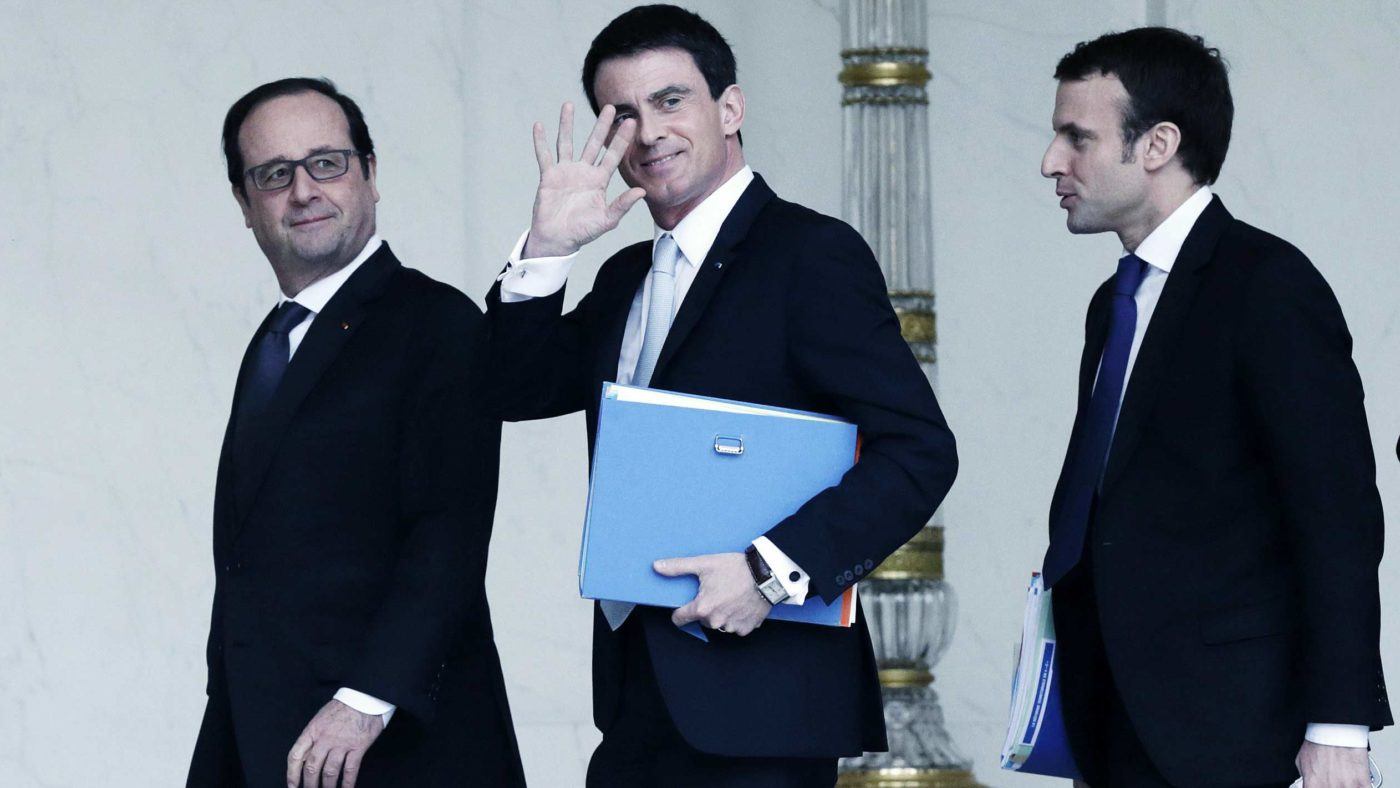The French Right settled long ago on their candidate for this year’s crucial elections and have rallied behind Francois Fillon’s social conservatism and liberal economics. On the Left, however, things are not so clear cut – with a confusion of candidates fighting for the nomination on 22 January.
Yet never has an election been more important. France is suffering from mass unemployment, over-taxation and under-investment. The country’s economy is in the doldrums and government policies have done compounded the stagnation.
It is crunch time. And rather than uniting to focus on the key battle ahead, the Left is more divided than ever; hard-liners and moderates squabble among themselves, desperate for a seat at the political top table. There are currently seven candidates, including leading players, Manuel Valls, Arnaud Montebourg, Vincent Peillon, fighting for the Socialist party’s nomination. Emmanuel Macron has decided to ditch his party altogether and stand as an independent. And Jean-Luc Mélenchon sticking to his guns on the far-Left.
But will any of them advance workable political solutions or assure serious change? And is any one of them strong enough to prevent the Left from tearing itself apart?
Manuel Valls, is the leading socialist contender. He recently resigned as prime minister to prepare his candidacy and, even though he was once François Hollande’s right-hand man, didn’t shed a tear as he abandoned the man who had done so much for his career. Indeed, Valls’ presidential bid was the pretty much knockout punch of Hollande’s own political career.
But Hollande also played a part in his own demise, doing much to fragment the Left and losing millions of voters as he alienated the Greens and his allies with his sudden mid-term shift towards pro-business policies.
Valls, though, has been accused of transparent opportunism in his presidential bid and has already abandoned those business policies he advocated as premier, in favour of a sudden shift to the Left. He also intends to scrap certain constitutional powers he found quite useful.
Article 49 of the French Constitution, for example, grants the prime minster the exceptional ability to pass laws without the approval of the parliament. Even though he managed to force through six pieces of legislation with its help, the former PM has had a change of heart and is now vowing to ditch the deeply unpopular and controversial clause.
Standing firmly to the Left of Valls, and remaining true to his socialist principles, is Arnaud Montebourg. Keen to take the party back to its socialist roots, he is a known hard-liner on economic intervention, most famously on fiscal policy. A former Minister for Industrial Renewal, he is a key advocate for higher taxation and for fighting tax evasion. He described a policy giving France the power to veto foreign takeover of national companies as “the end of laissez-faire politics” and in 2014, he stated that:
“France is the eurozone’s second-biggest economy, the world’s fifth-greatest power, and it does not intend to align itself, ladies and gentlemen, with the excessive obsessions of Germany’s conservatives.”
The same year Hollande went soft on big business, Montebourg resigned. This hardline socialist steadfastly remains an outsider in the race.
Vincent Peillon is of a comparable breed. The MEP was Hollande’s Minister of Education until 2014. Peillon, though, managed to leave the French education system virtually untouched, despite the fact that reforms are desperately needed: the latest OECD Programme for International Student Assessment (PISA) test showed France not scoring enough to achieve the highly-qualified student level, unlike Germany and the UK, and scoring below the OECD average on “pupils with significant difficulties”, with a solid 22 per cent of them struggling to make it through the system.
Peillon finds himself politically mid-way between of Valls and Montebourg, rallying Hollande-loyalists behind him, in a desperate attempt to remain relevant.
Emmanuel Macron, meanwhile, former minister of the Economy, quit the socialist government this year and is running as an independent candidate. He is currently polling in double digits, drawing support from all sides of the political spectrum. His rallies attract young people and centre-Left voters in support of the European Union.
It is safe to say that his political message has been recalibrated: once serving in a socialist government which increased taxes and spending and whose leader had run a campaign “to dominate the financial markets”, he is now running on an opportunistic message of free-markets and defeating over-regulation. He’s not fooling the the French electorate, for whom this is becoming increasingly difficult to digest.
One person is certain to benefit from the chaos among the Left: Marine Le Pen. Her National Front party’s hard-line protectionism – which includes taxing imports and subsidising the local economy, leaving the European Union, and bringing back the French Franc – is sure to appeal to the working classes who feel so disenfranchised by the failure of the classic French Left.
Indeed, both working classes and young people are Le Pen’s strongest voter base, as both have seen their purchasing power decreased and struggle to remain in the labour market.
The foolish, self-serving behaviour of a divided Left scrabbling to hold on to power will leave a considerable part of the electorate stranded, ripe to be plucked by the extreme right, which might well free the country from its socialist politicians, but not of its economic policies.


